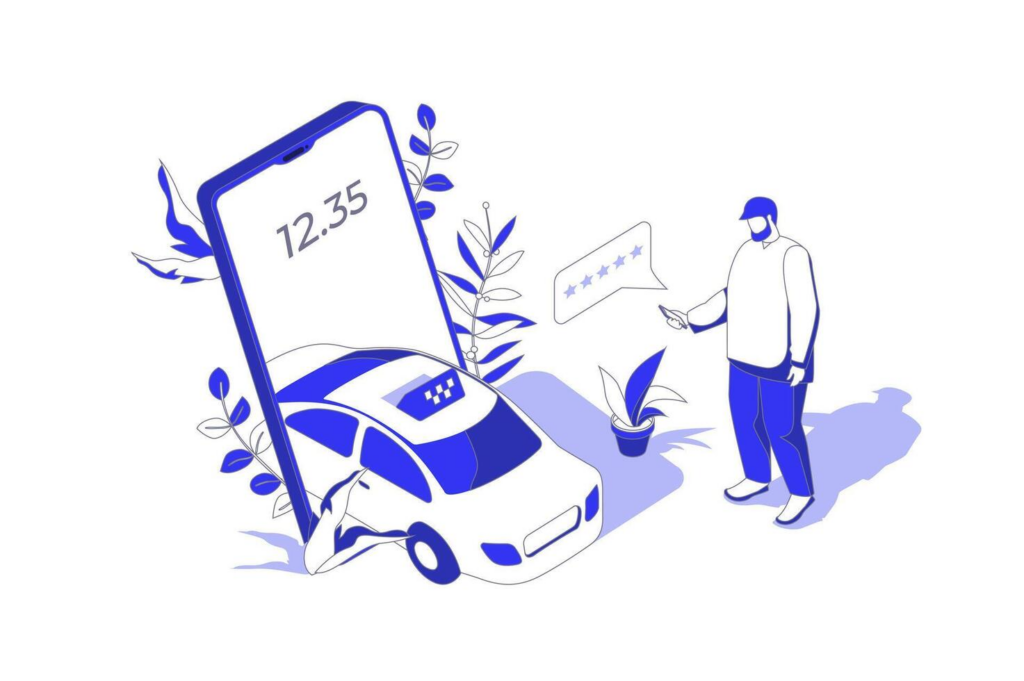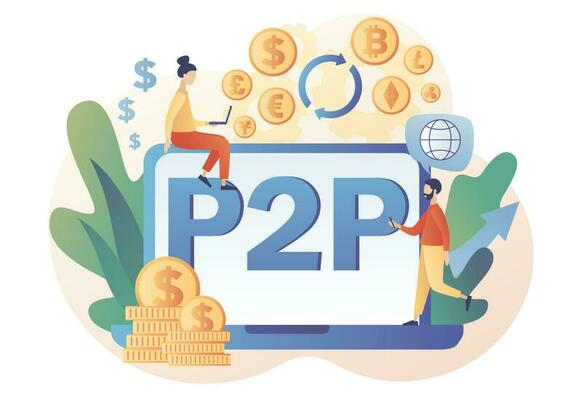Amidst the complexities of the digital ecosystem, an average web developer in Malaysia is increasingly confronted with sophisticated cyber threats.
Mobile applications, the arteries pumping life into this digital organism, are increasingly targeted, putting business operations, data, and reputation at risk.
With cybercrime costs expected to reach a staggering $10.5 trillion annually by 2025, businesses of all scales must adapt to stay protected.
In this blog, let’s look at the top cybersecurity challenges that 2024 has unveiled and understand how mobile app development is evolving to safeguard against these threats.
Web Developer Malaysia: Key Cybersecurity Challenges in 2024

As we journey further into the intricacies of the digital realm of mobile apps, here are some primary challenges associated with cybersecurity in 2024:
1. Adapting to a Remote Workforce
With the rise of remote work, an unintended doorway has opened for cybercriminals. Employees, due to negligence, fatigue, or lack of cyber-literacy, might unknowingly grant them access to their computers or company files. It’s estimated that up to 95% of cyber-attacks are due to human error, signifying the magnitude of this issue.
2. Emerging 5G Applications
The advent of 5G networks comes with increased cybersecurity risks. Many consumers and businesses eager to leverage 5G’s high-speed capabilities often lack the necessary know-how to evaluate and handle these risks. This is a key area where a web developer in Malaysia can provide valuable guidance.
3. Blockchain and Cryptocurrency Attacks
Blockchain systems and cryptocurrencies, despite their robust security measures, are not completely immune to cyber threats. Insiders and external attackers can use techniques like phishing and social engineering to compromise these systems. In 2022 alone, $3.8 billion was lost to cryptocurrency fraud and theft.
4. Ransomware Evolution
Ransomware, which locks down files until a ransom is paid, has evolved beyond the reach of traditional backup procedures. The global cost of ransomware recovery reached an average of $1.85 million per incident in 2021, underscoring the financial implications of this evolving threat.
5. IoT Attacks
Our increasing reliance on IoT devices to access sensitive consumer data has marked these devices as prime targets for cybercriminals. Criminals may sabotage the device, implant malware, or manipulate it to gain access to more valuable company information. This means even devices like your coffee maker or thermostat could be potential threats if not properly secured.
6. Cloud Attacks
Cyberattacks are increasingly targeting remote service providers that use cloud infrastructure for hosting, computing, or storage services. By 2025, it’s projected that 85% of organizations will be using cloud services. As more businesses migrate to the cloud, it’s becoming a veritable hunting ground for cybercriminals looking for potential vulnerabilities.
7. Software Vulnerabilities
Software flaws, resulting from coding errors or design oversights, are a significant risk, often providing an open doorway for attackers to gain system access. This issue underscores the critical need for more stringent software development practices and ongoing security updates to patch any discovered vulnerabilities. For businesses, partnering with a reliable web developer in Malaysia is crucial to address these vulnerabilities effectively.
The Importance of Adapting to These Challenges

In the rapidly changing landscape, overlooking cybersecurity threats can lead to disastrous consequences for Malaysian businesses. The costs of these threats are not just monetary; they also impact customer trust and the company’s reputation. Let’s break down the reasons why businesses must adapt to these challenges:
Financial Consequences
Non-compliance with the growing web of data protection and privacy laws around the world can burn a hole in a company’s pocket. Regulatory bodies, including Malaysia’s Personal Data Protection Act (PDPA), have put into place stringent laws with heavy penalties for breaches.
For instance, under GDPR (General Data Protection Regulation) in Europe, non-compliant organizations can be fined up to €20 million, or 4% of their annual global turnover, whichever is higher.
Loss of Customer Trust
Trust is a valuable commodity in the business world. These breaching instances typically disrupt this trust and make customers think twice before doing business with the affected company.
According to a 2019 survey by Ping Identity, 81% of participants would stop engaging with a brand online after a data breach. Hence, most web developers in Malaysia tend to prioritise safeguarding against data breaches.
Legal Repercussions
Aside from regulatory fines, companies might face legal repercussions following a significant data breach. Consumers or other businesses affected by the breach could potentially sue for damages.
Additionally, a noteworthy study conducted by Statista provides crucial insights into users’ attitudes toward app security across both major platforms: iOS and Android. In the survey carried out in 2021, it was found that close to half of the respondents, about 45%, would not hesitate to advise their friends and family to discontinue using a particular app if they had concerns about data security and usage. The survey further highlighted that iOS users exhibited a higher level of concern over such issues, underscoring the importance users place on security, irrespective of the platform.
How Mobile App Development is Adapting to These Challenges in 2023

The mobile app development market is actively evolving to keep pace with the growing cybersecurity threats. One of the keys to this evolution is the adoption of secure coding practices. Developers are now more cautious than ever about coding securely right from the onset, ensuring their code stands strong against potential cyber threats. An excellent illustration of this is how platforms like Google’s Android and Apple’s iOS provide developers with secure coding guidelines.
Furthermore, testing isn’t just a final stage before deploying an app anymore. The industry is witnessing robust security testing woven into every stage of the development process. GitHub, for instance, offers automated security features to detect vulnerabilities in the code during the development process. A knowledgeable web developer in Malaysia can leverage these tools to enhance the security of their applications.
As the tech industry in Malaysia moves forward, developers are not shying away from harnessing the power of Machine Learning and AI to enhance security measures. Tools using AI and ML are being employed for predictive security and anomaly detection, adding a smart layer to security protocols, and allowing businesses to integrate mobile apps into their models fearlessly.
Simultaneously, the DevSecOps approach, which marries development, security, and operations, is on the rise. This methodology encourages developers to incorporate security considerations from the get-go rather than as an afterthought. Companies like Puppet are already offering solutions that emphasize continuous security integration through DevOps.
In addition to this, encryption and multi-factor authentication are gaining popularity as key features to ensure data privacy in 2023. Many popular apps, like WhatsApp, use end-to-end encryption, while others like Google and Facebook provide multi-factor authentication options to ensure the user’s identity. Working with a proficient web developer in Malaysia can help businesses implement these security measures effectively.
Yet, it’s not just about making existing processes secure. The industry is also witnessing a surge in new approaches like data minimization. By collecting only necessary data, web developers in Malaysia are taking necessary measures to decrease the potential damage from data breaches. Similarly, many organizations, including Apple, are incorporating Privacy by Design, thinking about data protection issues right at the design phase of the application.
Developers in Malaysia also acknowledge the importance of continuous maintenance for cybersecurity and that regular patching and updates are crucial to fix bugs and patch vulnerabilities. And lastly, secure and updated frameworks are being used more widely. The Spring Framework for Java development, for instance, offers numerous features that assist developers in creating secure applications.
Overall, the industry, both in Malaysia and worldwide, is making strides in the right direction. By keeping security at the forefront of all practices, mobile app developers are not just reacting to cyber threats but proactively preventing them. As cybersecurity expert Bruce Schneier aptly put it, “Security is not a product, but a process.” It’s a continual journey, and every step we take towards enhancing security today paves the way for a safer, more secure future in the digital realm.
As the threats of cybercrime become increasingly sophisticated, our response must evolve with equal vigor and innovation. The continuous pursuit of secure coding practices and robust security testing is a strong testament to the industry’s resilience. Developers in Malaysia, aware of the dynamic nature of cyber threats, are responding proactively, embracing the challenges as opportunities for innovation. Collaborating with a skilled web developer in Malaysia can ensure that your business stays ahead of these threats.
But technology alone cannot address the complexities of cybersecurity. It requires a holistic approach that combines technical measures with a strong commitment to educating users, fostering a culture of security, and constantly adapting to new threats.
At this juncture, as a reliable web and mobile app development company in Malaysia, SegWitz recognizes the magnitude of the responsibility we hold. With our commitment to adopting advanced cybersecurity practices and raising more awareness about the subject, we’re paving the way for a safer, more secure future for mobile app users worldwide. After all, it’s not just about building apps—it’s about building trust, ensuring resilience, and making the digital world a better place for everyone. Join us on this journey as we continue to forge the path of innovation, one secure app at a time.



